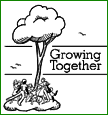
Essential Program Components
Ongoing and Regular Monitoring, Assessment, and When Necessary, Referral to Necessary Services: Each demonstration of the model will have in place a system for regular monitoring of child development and family well-being, for all children of families who participate in the program. Children will be developmentally assessed when appropriate and provided with consultation and/or referrals to relevant services within the program or to outside agencies. An Infant Monitoring System, consisting of questionnaires mailed to parents at regular intervals after the birth of their child, must be in place to track the development of each child. Additionally, each program will include a Developmental Clinic for testing and consultation by a paediatrician, public health nurse, psychologist, and a speech and language pathologist.
Child Centred Programs: Each model will have a set of programs that are provided directly to the child. These may include play groups, treatment of developmental delays, child care, etc.
Parent-Child Centred Programs that emphasize enhancement of the parent-child attachment and relationship: Each model will provide services of direct intervention with the caregiver-infant/child dyad, interactional coaching and health promotion. At the Growing Together Centre, or at home, parents may receive individual, joint, family or group counselling, therapy or crisis intervention if a parent is depressed, has an emotional or psychiatric condition, is abusive or violence is present in the home.
Family Support: Each model will provide services to build a support network for families, with links to relevant services in the community. The building of a nurturing worker-client relationship is crucial. Group meetings often serve to reduce isolation, learn new skills and enhance parent competencies (e.g. computer skills, conversational English, community kitchens).
Community Development: Each model must establish a community development program, to enhance the living conditions of families. These may include a community safety program, neighbourhood enhancement initiatives, community advocacy activities and community events, etc.
